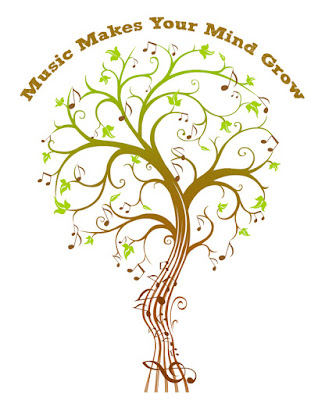Music Promotes Learning
I was reading an article on the value of music education and learned once again about a documented truth that I firmly believe in. I hope you feel the same. I think this is why I am so passionate on teaching preschool-kindergarten children how to play the piano!
"Agnes Chan of the Chinese University of Hong Kong had released a study in 2003 finding that among 90 boys between ages 6 and 15, those who had musical training in school and lessons in classical music for one to five years scored better than those with no musical exposure on verbal memory tests. The study also found that those students who continued music studies showed continued improvement over others in vocabulary and memory. Chan speculates that music training provides a sensory stimulus to better develop the left temporal lobe of the brain."
Teaching Goal
Some of my monthly goals for the new school year are to encourage students to be comfortably fluent in Major & Minor Scales, reading chord charts, observing dynamics (echo playing), playing arpeggios smoothly, and learning I-IV-V chord progressions in every key.
Van Cliburn said, "I don't like to practice, never have. But when I do get started at the piano, for the first 10 minutes, I play scales slowly. I've done this all my life. Listen to the sounds you make. The sound of each tone will generate a response in you. It will give you energy."
Teaching Music and Steady Beat
Music and math do go together! Preschool kids love learning repetitive patterns!
"Children with steady beat independence are better readers and more successful in mathematics. Steady beat seems to help in this area because it contributes to children's ability to concentrate, to understand space and distance, and to have better control of physical movements. Repetition is an essential component for building skills. Repetition builds understanding." -- Phyllis Weokart
Discipline is a good thing!!
"Develop four new good habits each year. Instead of watching TV, read a good book or play the piano! It takes a minimum of 25 days for the brain to build the neural links required to make a new behavior a habit. I suggest practicing a new habit for three months to ensure that it sinks in. Once it becomes second nature, add another new habit. At three months per habit, there's time to add four each other. In five years you will have 20 new habits that will help fuel your success." -- Natalie Babbitt
Treat children with respect. Recognize children's changing capabilities and have faith in their capacity to develop and learn. We must recognize the unique way in which children are children, not simply miniature adults. With piano lessons, children feel lovable valuable and competent!
"Each second that we live is a new and unique moment of the universe, a moment that will never be again. And what do we teach our children? We teach them that 2 and 2 make 4 and that Paris is the capital of France. When will we teach them what they are? We should say to each of them: Do you know what you are? You are a marvel. You are unique. In all the years that have passed, there has never been another child like you. Your legs, your arms, your clever fingers, the way you move.
You may become a Shakespeare, a Michelangelo, a BEETHOVEN! You have the capacity for anything! Yes, you are a marvel!!!" -- Pablo Casals
Piano Teacher for WunderKeys
You may be interested in this fantastic music program (learn to play the piano) for preschool-kindergarten (ages 3-5). For information, visit my Face Book page, here.
If you are a music teacher, I sincerely hope you have been encouraged to keep doing what you do! For those who are a beginner student, please be patient with yourself. It takes awhile to strengthen finger dexterity. Practice! You'll get it! Playing the piano is fun! Many of us enjoy being a part of a band or worship team. The chemistry with band members is marvelous and the thrill of performing is exciting! So many individuals play for their own enjoyment, such as a favorite hymn or gathering around the piano at Christmas, singing favorite songs. Be inspired! You have a gift! Keep it up!
Warmly,
"The beautiful thing about learning is that no one can take it away from you." B.B.King
























![Validate my Atom 1.0 feed [Valid Atom 1.0]](valid-atom.png)







